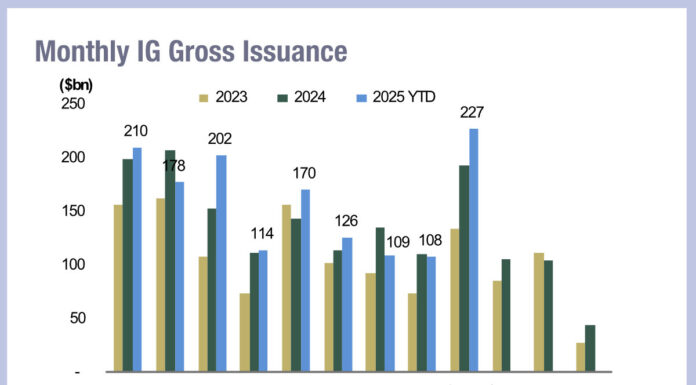The senior portfolio manager for Norwegian investment firm Kraft Finans, Øivind Thorstensen, was piggy-backing on client investment in new bond issues, in order to self-trade bonds which he then flipped for a quick buck according to the Norwegian market regulator Finanstilsynet.
It wrote, “the trustee has abused his position, with repetitive trading patterns that appear to be very predictable and systematic. It also appears as it is obvious to Finanstilsynet that the brokers in question had knowledge of the practice of parallel trading and the manager’s intention to ‘flip’ the private allocation immediately after allocation, and thus should have helped prevent the trustee from acting in this way.”
The head of media relations at Kraft Finans, said, “[Thorstensen] has misunderstood Kraft Finans’ internal regulations for self-trading, and regretted that he has not familiarised himself better with the regulations.”
Following an investigation by the regulator he was found to have been buying into newly issued bond deals with his own money when client funds were also being invested, and then immediately selling the bonds into the secondary market, a practice known as ‘flipping’. The trades in question were conducted between August 2018 and November 2019. This meant a breach of provisions in the previous Securities Trading Act, Chapter 8 on employees’ own trading.
In connection with the implementation of MiFID II in Norwegian law, the special Norwegian provisions on employees’ own trading were repealed with effect from 1 January 2019. The current regulation presupposes that investment firms have internal routines and control schemes to handle conflicts of interest and other relevant considerations associated with employee self-trading.
Finanstilsynet wrote, “The fact that the manager sold all private allotments before settlement entailed a breach of the provision on lock-in period, under the previous Securities Trading Act. The manager’s implementation of private trades through the same investment firm as the employer’s company in question also involved a breach the counterparty restriction in the previous Securities Trading Act. The manager’s parallel transactions privately and for the employer also entails a breach of provisions in previous and current securities regulations regarding handling of conflicts of interest and good business practice, under securities trading rules.”
In an assessment of the case, published in June 2021, Finanstilsynet’s view was that “the manager’s trading pattern appeared to be virtually risk-free arbitrage trading that could lead to other customers who received a reduced allocation increasing their holdings by buying [bonds] at a higher price in the secondary market from a player whose intention was never to own the bonds.”
It continued, “This entails a conflict of interest, and must be handled in accordance with Section 10-2 of the Securities Trading Act. This also appeared as behaviour that could be detrimental to the interests of other customers and the market integrity … for some of those surveyed issues, allocation to the manager privately has led to a marginally lower allocation for the fund and for others. However, the effect is very limited.”
Trading counterparties picked up on the behaviour before Finanstilsynet launched its investigations and the regulator observed that one of the firms confronted the manager with “and pointed out that the person in question had to clarify the relationship to the self-trading rules and noted that it was unfortunate to trade in the same securities that the fund managed” after which no further trades were made by the trustee via the relevant firm.
Another counterparty stated, “that its controls captured the trading pattern and it was asked on confirmation from the manager that it was in accordance with the employer’s self-trading rules.” Finanstilsynet wrote, “This appears to be a suitable measure, but does not appear to have had the desired effect, as the manager apparently had a different view of the regulations.”
The company spokesperson said, “At Kraft Finans, we have strict routines for self-trading and protecting investors’ investments is a high priority. We have conducted an internal investigation which concluded that no investors have been harmed by Thorstensen’s trades.”
©Markets Media Europe 2025













